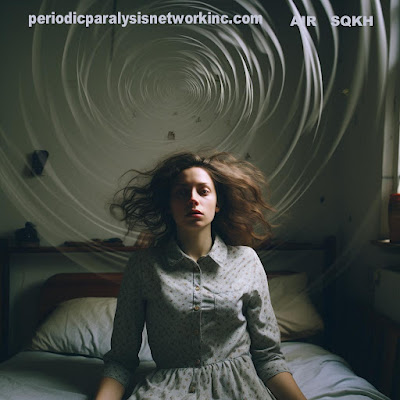POTS (Postural Orthostatic Tachycardia Syndrome)
and Periodic Paralysis Relationship
There is a relationship between POTS (Postural Orthostatic Tachycardia Syndrome) and Periodic Paralysis (PP), especially in individuals with autonomic dysfunction, such as those with Andersen-Tawil Syndrome (ATS), a form of PP. The link between these two conditions lies in the autonomic nervous system (ANS), which regulates involuntary body functions like heart rate and blood pressure. In both POTS and PP, dysfunction in the ANS can cause overlapping symptoms, including dizziness, fainting, rapid heart rate, and fatigue.
1. Autonomic Dysfunction: In individuals with PP, autonomic issues may arise, affecting cardiovascular regulation. Similarly, in POTS, there is dysregulation of blood flow and heart rate upon standing, which is caused by a malfunctioning ANS. For some patients with Andersen-Tawil Syndrome (ATS), this can result in symptoms similar to POTS, such as palpitations, dizziness, and blood pressure instability.
2. Electrolyte Imbalances: Both conditions can be affected by imbalances in electrolytes, particularly potassium. Potassium shifts, a hallmark of PP, can disrupt nerve and muscle function, including the regulation of heart rate and blood pressure, which is also affected in POTS. Maintaining proper electrolyte balance and staying hydrated are essential for managing symptoms in both conditions.
3. Overlap of Symptoms: People with PP may experience POTS-like symptoms due to cardiac involvement and muscle weakness. For example, people with Hyperkalemic PP or ATS often report symptoms like dizziness, rapid heartbeat, and weakness when standing, similar to POTS symptoms. In both conditions, episodes can be triggered by stress, dehydration, or even prolonged rest.
References:
- USC Journal, "POTS-associated Conditions and Management Strategies." This resource discusses the overlap between POTS and other conditions involving autonomic dysfunction.
- Oxford Academic, "Periodic Paralysis with Later-Onset Distal Motor Neuropathy," which discusses the neurological and autonomic complexities in PP.
Image: A woman experiencing POTS symptoms


No comments:
Post a Comment